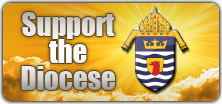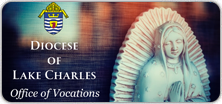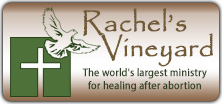The Most Reverend Glen John Provost
Bishop of Lake Charles
The Nativity of the Lord - Christmas
Cathedral of the Immaculate Conception
Lake Charles, Louisiana
December 25, 2021
“[T]here were shepherds in that region living in the fields and keeping the night watch over their flock.” Luke 2:8
Shepherds in the days of that first Christmas, in the days of Caesar Augustus, did not always enjoy a favorable reputation with their fellow Jews. Their work often kept them from attending to religious duties and observing the Law precisely. So, for many, they were ranked with sinners (cf. Xavier Léon-Dufour, Dictionary of Biblical Theology, p. 541). Their work was relentless, tiring and always vigilant for predators that would devour their sheep. But God chose them to be the first, apart from the Blessed Mother, to hear the “good news.”
The noted biblical scholar, Xavier Léon-Dufour, proposes a most charming explanation for the place of Jesus’ birth. He suggests that the Savior of the world was born on that first Christmas night in a stable belonging to these same shepherds who were “living in the fields and keeping the night watch” (ibid., p. 542). When “the angel of the Lord appeared to them” (Luke 2:9), they were justifiably afraid. But the angel points them home. The heavenly messenger reassures them and announces, “good news of great joy” (Luke 2:10). They go in haste to Bethlehem, with no further directions than that they will “find an infant wrapped in swaddling clothes and lying in a manger” (Luke 2:12). The shepherds’ own stable is the refuge for the family turned away at the inn.
And, so, the Savior of the world, who will preach a message of repentance and mercy to sinners, is born in the stable of poor shepherds. The glory of the Lord appears to them in the fields of their work, accompanied by the bleating of sheep and goats, the howling of wolves hiding in wait, still darkness and a silent moon arising from the horizon. It was the night of the Savior’s birth. How appropriate that shepherds would be the first to see a Redeemer who would live and die for the sinner.
And like the tax collectors and lepers, the Gentile soldier and Samaritan woman, the shepherds would be messengers of the Good News. “When they saw” the infant just as the angel had described they would, “they made known the message that had been told them about this child” (Luke 2:17). While we call Mary the first apostle, we must see the shepherds as the first evangelists.
Christmas belongs to shepherds, the shepherds of grassy hills and chilly nights. They tend their flocks and protect their sheep. They are the guardians of their terrain. Only an unexpected tumult of angels could frighten them. Only a babe in swaddling clothes could comfort them.
Christmas reassures not only the shepherds but also those who are innocent enough to see bands of angels, to believe, and to run in haste to Bethlehem. Such purity of heart that conquers the world is what perhaps inspired Shakespeare to pen those words spoken by another frightened watchman in Hamlet. Having seen the ghost of a murdered king, Marcellus strives to invoke the victory of good over evil that Christmas represents. He speaks thus:
Some say that ever ‘gainst that season comes
Wherein our Saviour’s birth is celebrated,
This bird of dawning singeth all night long;
And then, they say, no spirit dare stir abroad,
The nights are wholesome, then no planets strike,
No fairy takes, nor witch hath power to charm,
So hallow’d and so gracious is the time.
(Hamlet, Act I, Scene I, Marcellus to Horatio and Bernardo)
The world today desperately needs to hear this message of “so gracious [a] time.” As mankind loses balance and forgets God, it takes flight into passing fads and material things which offer no hope. We seek diversion in things that cannot last. Happiness eludes us because we look for it in the wrong places. We are, in the words of the great Louisiana writer, “lost in the cosmos” (cf. Walker Percy).
The shepherds keep calling us back to Bethlehem. They point the way to the manger in their stable. They point us to the changeless, and away from the transitory. Why do we maintain the delusion of creating a world without God and in so doing create instead a world to destroy man (cf. Henri de Lubac)?
The shepherds appear at our door and announce, “good news of great joy.” The humble shepherds! Really the least likely of messengers. Perhaps that is why today the “good news of great joy” becomes endangered. This secular and materialistic world ignores humble messengers. So accustomed are we to noise, the screaming commercials, the alluring enticements, the pursuit of pleasure, the constant assault of electronic gadgets—the “good news of great joy” does not have a chance. It is drowned out.
There is a reason the “good news of great joy” is first proclaimed to shepherds. The meek will inherit the earth. The poor will become rich. The hungry will be well fed. Maybe we should return home and be surprised by what we find.
May God grant us simplicity of heart. Like lowly shepherds, may we be innocent enough to hear angels and hasten to Bethlehem. And may we like them, never be the same again because we have seen the “infant wrapped in swaddling clothes and lying in a manger.” Merry Christmas!
















